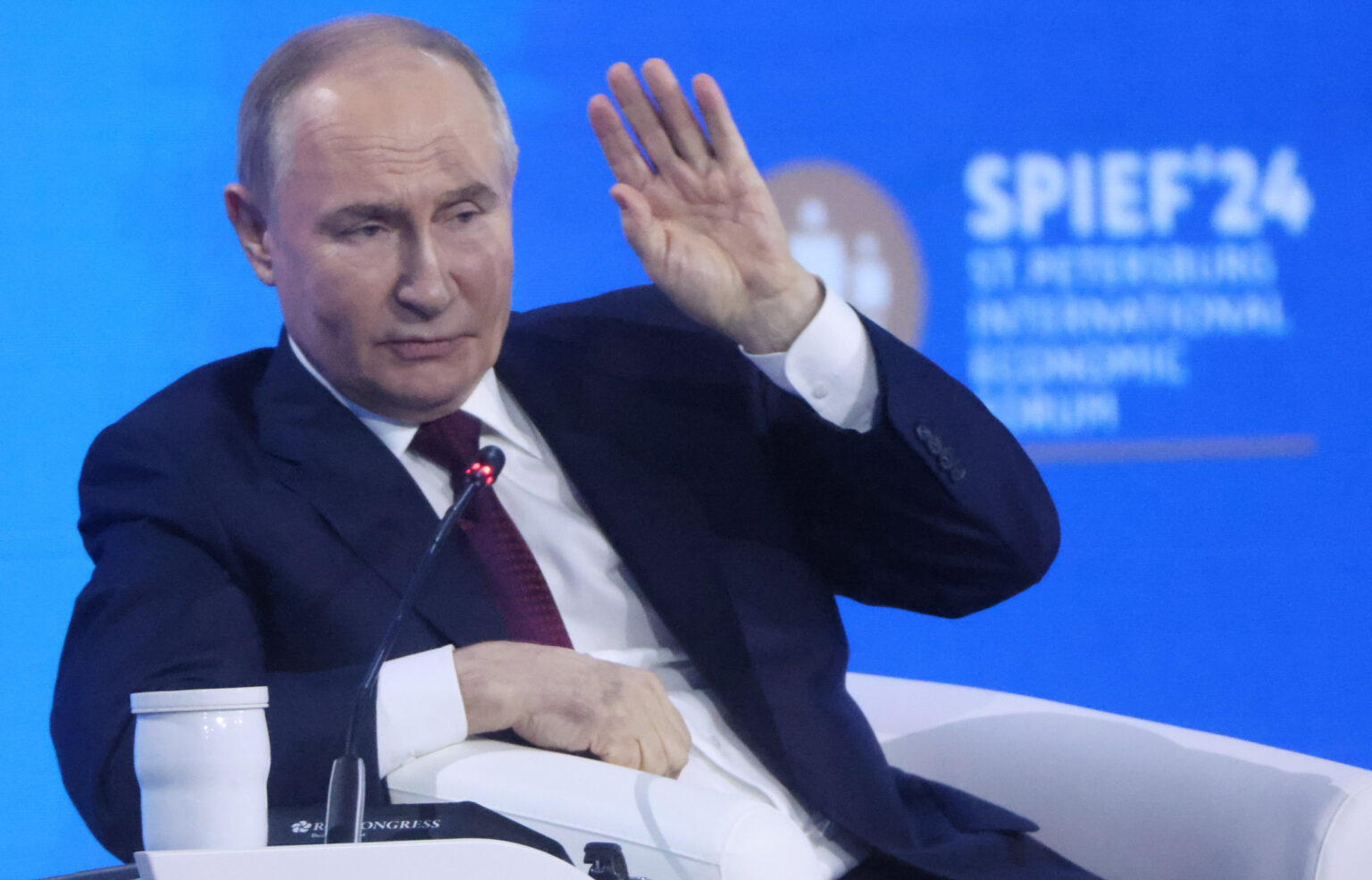Vladimir Putin has acknowledged Russia faces a labor shortage and has called on his government to address a growing demographic crisis.
Since the start of the full-scale invasion of Ukraine, Russia’s economy has so far been relatively resilient to economic turbulence caused by sanctions with better than expected IMF predictions for 3.2 percent GDP growth this year.
While GDP growth is only a crude measure of the health of an economy, Putin faces a challenge to pay for his six-year economic plan and record spending on the military, due in part to the loss of much of the lucrative European gas market.
There is also a dwindling work force hit hard by the mobilization of around 600,000 troops for the war in Ukraine, and up to one million Russians, many of whom are highly skilled, fleeing the country. Labor market shortages hold back production and force businesses to raise wages to retain or hire staff, which stokes inflation.
Russian President Vladimir Putin at the 2024 Saint Petersburg International Economic Forum, June 7, in Saint Petersburg. He admits Russia faces a labor shortage and has called on his government to act.
Getty Images
At Russia’s answer to Davos, the St Petersburg International Economic Forum (SPEIF) Putin framed the labor shortages as due to alleged “record low” unemployment, rather than his full-scale invasion—but migrant workers and keeping pensioners in work for longer could be the key to fixing this issue.
“The lack of labor limits economic growth,” Putin said in the address posted on the Kremlin website. “We are faced with not only a task, but also an opportunity to begin the massive attraction of qualified migrants from abroad.”
He said that would-be migrants would need to know Russian, as well as “our traditions and culture, our laws, so that these people who come feel comfortable here, and, most importantly, do not create problems for local citizens.”
“It is important to support the aspirations of people who have reached retirement age to continue working and be useful,” Putin said, “their knowledge, skills, and competencies are an important resource for the economy and society.”
In 2018, there were protests in Russia when the Kremlin announced a rise in the retirement age, for men from 60 to 65 and for women from 55 to 63. The Institute for the Study of War (ISW) said Friday that Putin will probably use financial incentives to push pensioners to work beyond the retirement age to help ease Russia’s labor shortages.
The Washington, D.C. think tank also said that Putin’s proposed migration policy shows how the Kremlin struggles to balance the need to address labor shortages with “wide-scale anti-migrant sentiments in Russia, particularly as the Kremlin tries to further mobilize the Russian defense industrial base.”
Putin also called on the Russian government to enact policies like improving education and training, digitalizing Russian industry and increasing the use of artificial intelligence (AI) to increase the labor supply and productivity.
Newsweek has contacted the Kremlin for comment.
Uncommon Knowledge
Newsweek is committed to challenging conventional wisdom and finding connections in the search for common ground.
Newsweek is committed to challenging conventional wisdom and finding connections in the search for common ground.
